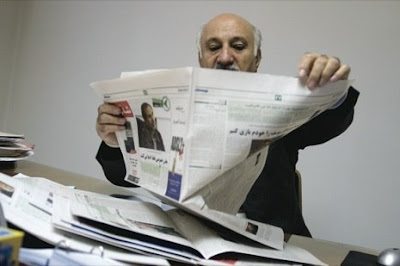
There is a breathless hush at the close tonight -
Ten to make and a match to win -
A bumping pitch and a blinding light,
An hour to play and the last man in.
And it's not for the sake of a ribboned coat,
Or the selfish hope of a season's fame,
But his captain's hand on his shoulder smote
Play up! play up! and play the game!
My family's primary religion is cricket. I grew up with these words echoing inside my head, reminding me that cricket is our spiritual calling.
When I recited this poem at my grandparent's dinner parties, or at junior school elocution competitions in Madras, I was vaguely aware that there was more to the poem. But I stopped the recitation at this point. That was probably a good thing. In the Victorian original the next stanzas go:
The sand of the desert is sodden red -
Red with the wreck of a square that broke
The gatling's jammed and the colonel dead,
And the regiment blind with dust and smoke.
The river of death has brimmed its banks,
And England's far, and Honour a name,
But the voice of a schoolboy rallies the ranks -
"Play up! Play up! And play the game!"
This is the word that year by year,
While in her place the school is set,
Every one of her sons must hear,
And none that hears it dare forget.
This they all with a joyful mind
Bear through life like a torch in flame,
And falling fling to the host behind -
"Play up! Play up! And play the game!"
Jeremy Paxman quotes this poem, Vitai Lampada, in The English. Paxman's take on the poem:
It is hard not to be carried along in its rhythm, even if there is something so breathtakingly stupid about the poem that it is hard to imagine how on earth it could ever have been taken seriously. Yet, in the balmy days before August 1914, the idea that life was essentially a version of the Game seemed almost plausible.
"The sand of the desert is sodden red, red with the wreck of a square that broke", is a reference to the seige of Khartoum, a colonial misadventure which ended with the entire garrison at Khartoum slaughtered and General Gordon, the British officer in charge of the garrison, beheaded by the Mahdi army.
And that is somehow like a game of cricket? Paxman is spot on: breathtakingly stupid.

Reminds me of Lance Klusener. He was asked how he stayed so calm after South Africa crashed out of the 1999 World Cup semi-finals in one of the greatest games ever. Klusener said "nobody died".
Good perspective. Must remember next time India are playing.









